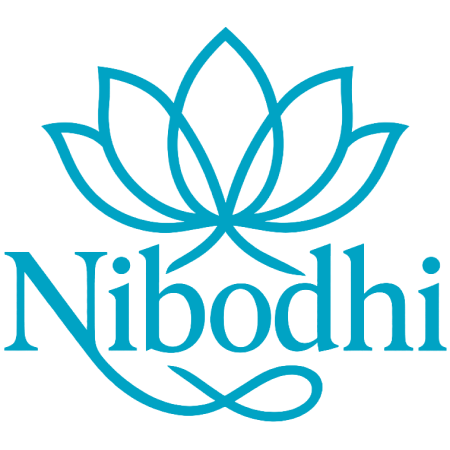Cultivating emotional intelligence through Ayurveda

This post is for general informational purposes only and may include affiliate links. It is not intended as medical advice. We may earn a commission through qualifying purchases. Read the full disclaimer.
Exploring the roots of emotional intelligence in Ayurveda
Emotional intelligence has been present in ancient systems like Ayurveda for thousands of years, described and approached in ways that reflect their holistic understanding of life. It refers to the ability to be present with emotions, recognize their origin, and engage with them in a conscious and integrated way within ourselves and in relationships.
It is the foundation beneath empathy, self-awareness, communication, resilience, and spiritual growth.
When you bring Ayurveda into the picture, emotional intelligence becomes a way of living. It is a process of learning how to harmonize the body, mind, and spirit so we can engage with our emotions in a conscious and supportive way.
Through this approach, emotional intelligence begins to reflect a steady presence and deeper connection with ourselves, others, and the natural rhythms of life.
Understanding emotional intelligence and the foundation
Emotional intelligence, often abbreviated as EI or EQ, refers to your ability to recognize, understand, and manage your emotions and the emotions of others. It's a form of intelligence that's subtle, powerful, and transformative.
Psychology often links it to five main pillars:
- Self-Awareness – Knowing what you're feeling and why
- Self-Regulation – Managing emotions with conscious awareness and wisdom rather than reaction
- Motivation – Channeling emotions to fuel meaningful action
- Empathy – Truly understanding the feelings and perspectives of others
- Social Skills – Navigating relationships with care, clarity, and trust
Together, these skills create the groundwork for meaningful relationships, inner peace, and emotional resilience. And they also form the emotional and psychological foundation of spiritual practice.
But the real question is: How do we cultivate them?
Self-awareness and self-regulation in practice
Self-awareness is the ability to recognize what you're feeling in the moment. It means understanding how certain emotions shape your thoughts, decisions, and behaviors. The deeper this awareness, the more conscious your life becomes. You're no longer reacting from old patterns; you're choosing how you show up.
That awareness leads naturally into self-regulation. Once you can see your emotional patterns clearly, you can start to shift them. Self-regulation allows us to pause instead of reacting impulsively. You begin to choose your response rather than letting emotions dictate your behavior. This is where mindfulness practices become important, as they help train that inner "emotional muscle."
Think of it like building strength at the emotional gym. Every time you pause, every time you breathe instead of react, you're creating new neural pathways and choosing peace.
The fuel of motivation and inspiration
Motivation, when connected to emotional intelligence, can be understood as an expression of inner alignment. It involves recognizing what holds meaning personally and using that understanding to guide actions and direction.
When you're emotionally intelligent, you don't need someone else to push you. Your emotions become fuel for your vision. Even frustration or grief can become sources of creative energy if they're acknowledged and redirected. The key is to stay connected to what truly matters to you, and use your emotions to keep you moving forward.
This type of motivation reflects continuity and is connected to internal alignment.
Empathy and emotional connection
Empathy can be viewed as a key aspect of emotional intelligence. It involves recognizing and relating to the emotional experiences of others through both intellectual understanding and emotional presence. This process often starts with acknowledging and understanding one's own emotional experiences.
If you can sit with another human being for hours and listen, really listen, something shifts. You begin to see their story, their experience, and their uniqueness. You recognize pieces of yourself in them. That’s empathy. And from empathy, compassion grows. So does trust.
Empathy is also what makes deep relationships possible. It creates emotional safety. And emotional safety creates authentic love.
Social skills and relational intelligence
Social skills are what allow us to navigate the complexities of human connection. With emotional intelligence, we bring intention, listening, patience, and presence into how we relate.
These are skills that support effective communication. They contribute to how individuals engage in community, participate in group dynamics, and interact in ways that reflect mutual respect. With emotional awareness, people can create space for shared connection while also maintaining their own boundaries.
Ultimately, social skills rooted in emotional awareness lead to stronger, more honest relationships.
Why emotional intelligence truly matters
You can be skilled, focused, and thoughtful, and learning how to process emotions and engage meaningfully with others adds another layer to your experience of life. Emotional intelligence gives us the ability to navigate hardship with grace, to cultivate peace in the midst of chaos, and to connect deeply with others.
It’s what allows you to be real, to be seen, and to grow through whatever life throws your way.
Ayurveda's view on the emotional intelligence path
Ayurveda recognizes that emotional health is not separate from physical health or spiritual growth. They're all woven together.
Ayurveda approaches emotions through the lens of the doshas (Vata, Pitta, Kapha) and gunas (Sattva, Rajas, Tamas). These energetic qualities shape our tendencies, our emotional patterns, and our states of mind.
When the doshas are balanced, and when sattva predominates in the mind, emotional intelligence arises naturally. There is clarity, calm, empathy, and discernment.
But when rajas (agitation) or tamas (inertia) take over, emotions become reactive, heavy, or distorted. We fall out of alignment with ourselves.
Dosha-specific emotional patterns
Ayurveda teaches that emotional tendencies vary by constitution. Each dosha has unique strengths and vulnerabilities:
- Vata (Air & Space) – Creative, empathetic, and imaginative when balanced. When imbalanced: anxious, overwhelmed, scattered.
- Pitta (Fire & Water) – Passionate, motivated, and clear-headed when balanced. When imbalanced: angry, impatient, critical.
- Kapha (Earth & Water) – Compassionate, stable, and nurturing when balanced. When imbalanced: lethargic, resistant to change, emotionally withdrawn.
Understanding your dosha offers insights into how your emotions show up and what tools can bring you back into balance.
Practical ways to cultivate emotional intelligence with Ayurveda
It is possible to explore small, consistent Ayurvedic practices that support how you feel, think, and relate. These practices can be integrated gradually into your existing routines in a way that suits your current pace of life.
Here are a few essential tools for each dosha:
- Vata balancing – Warm, grounding foods; stable routines; oil massage with sesame oil; slow, mindful yoga; journaling for clarity.
- Pitta balancing – Cooling foods; gratitude journaling; restorative yoga; coconut oil massage; breathwork to cool the mind.
- Kapha balancing – Spicy, light foods; energizing exercise; uplifting music; dry brushing; vinyasa or power yoga.
And for all doshas:
- Meditation – Practice witnessing thoughts without judgment.
- Breathwork – Use pranayama to shift your state of mind.
- Nature time – Reconnect with something bigger than yourself.
- Herbs – Ashwagandha, brahmi, and tulsi can help support emotional balance.
Ayurveda also encourages daily self-inquiry. Journaling helps build emotional intelligence by putting language to our inner world.
Try these prompts:
- What emotion did I experience today, and how did I respond?
- What can I learn from today’s emotional experiences?
Just noticing without judgment begins to shift everything.
The role of community and communication
Emotional intelligence develops in relationship with others. Ayurveda includes guidance for fostering meaningful connection and engaged listening. When interactions include gratitude and presence, a deeper sense of mutual understanding can arise.
Healing happens through connection.
Emotional intelligence as a spiritual practice
At its deepest level, emotional intelligence is a spiritual path. It involves being present with our emotional experiences and understanding how they reflect our inner world. Letting them guide us back to ourselves allows for greater self-awareness and connection. Letting them reveal where we are still holding, still afraid, still closed.
In the Ayurvedic view, emotions are understood as signals that carry information about our inner state. When we pay attention to them, they provide insights into how we are relating to ourselves and the world. Engaging with emotions in alignment with nature supports a sense of balance and connection.
Ultimately, emotional intelligence invites us to return to who we really are: Compassionate, conscious beings walking each other home.
Final reflection and starting point
What is your emotional landscape today? What dosha feels most alive in your system? What one small Ayurvedic shift could help you feel more balanced, more awake, more emotionally clear?
Start there.
The journey of emotional intelligence is a journey inward. Ayurveda gives us the roadmap. But you hold the compass.
Prefer to listen instead?
This blog post is a written version of the podcast episode, Emotional Intelligence Through the Eyes of Ayurveda. It covers the key insights for easy reading. If you want the full audio experience with personal stories and the energy of the conversation, listen to the full episode.
What I use and love
Want to know what I recommend for a healthier, happier life? Every product on Nibodhi’s Favorites is something I personally use, trust, and love. Take a look at my go-to wellness picks.
Join my free newsletter
Get quick daily wins, health insights, and science-backed wisdom for a healthier, calmer, and more radiant life. 5 New tips Every Thursday.

